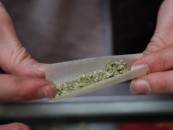THE Australian pig industry has a problem. It is in the process of phasing out sow stalls but competing against overseas competitors that will probably continue using them indefinitely.
Sow stalls are individual pens used to house pregnant sows to prevent them from engaging in activities that lead to miscarriages, particularly fighting with other sows. Pig farms that use them tend to have higher productivity, in the form of more live piglets born per sow.
The Australian industry has come under enormous pressure from animal rights activists who insist sow stalls are not humane. Their assertions are anthropomorphic (ie. they ascribe human feelings to animals), based on emotion, and put the entire welfare emphasis on the sow with no consideration at all for the piglets that die when stalls are not used. Nonetheless, they have been quite successful.
In 2010 Coles responded to this pressure by telling pork suppliers it would not accept product from piggeries that continued to use sow stalls. The pig industry, which was already in the process of reviewing its position, then agreed to phase them out by 2017. Many producers have not waited until then.
The pig industry was operating on the assumption, as many industries do, that giving a bit of ground would prevent a worse situation from developing. The same thinking has led many companies to sign up to “roundtables” in which the World Wildlife Fund (WWF) plays good cop while Greenpeace lurks in the background as bad cop. The Forest Stewardship Council (FSC) and its certification process is another example.
Even if the activists were on the right side of a black-and-white argument, which is clearly not so, the logic of Australia making itself uncompetitive in the international pig meat market is dubious. If sow stalls are to be abolished, it probably only makes sense in the context of an international agreement in which no country gains an advantage.
But there is no international momentum for this.
British supermarkets (from which Coles has obtained its current crop of senior managers) demand their pork suppliers not use sow stalls, and Danish piggeries that supply the British market have responded, but that’s about it. There is no Europe-wide drive to stop using sow stalls and absolutely no interest in abandoning them in the US or Canada, both of which are huge pork producers and exporters.
The consequences are predictable. Pig producers in Europe and North America enjoy lower costs of production, and imported ham, bacon and other smallgoods account for around 70 per cent of the Australian market. While Australians continue to tell market researchers they prefer pork sourced from piggeries that don’t use sow stalls, their purchasing behaviour tells a different story. In the end, only price really matters.
Although Coles is buying more Australian pig products – in part because it cannot source enough non-sow-stall product from overseas – the same is not true of its competitors. By yielding to the pressure from the activists, Australian pig farmers have reduced their competitiveness.
Some will say this is all fine; at least Australia’s sows are happier, Australia is setting a good example for the rest of the world, and it’s not all about making money. Except that this route ultimately leads to poverty. It’s much the same as adopting a carbon tax when the rest of the world does not. All it achieves is to transfer jobs and profits to your international competitors.
What it also highlights is the weakness in the strategy of offering compromise. It is common for business people to believe that compromise is the best approach, because that’s usually how things are resolved when both sides are rational. But animal rights activists and other eco-fundamentalists, including WWF and Greenpeace, are different. They regard compromise as a sign of weakness and use it to present new arguments from a strengthened position. The ultimate goal of the animal rights lobby, for example, is universal veganism, not happy pigs. Making pig farmers uncompetitive is merely a step on that road.
Faced with similar types of foes, whether superficially “reasonable” or not, some organisations have abandoned the notion of compromise and simply refused to give any ground whatsoever. And on the basis that the best form of defence is attack, that has been employed too too.
A good example of this is seen in the US, where 13 states have introduced food libel laws allowing a food manufacturer or processor to sue a person or group who makes disparaging comments about their food products. In some cases these laws even place the burden of proof on the party being sued.
In 1998, television talk-show host Oprah Winfrey and one of her guests were involved in a Texas lawsuit based on a food libel law known as the False Disparagement of Perishable Food Products Act, arising from an episode of her show in which the two made disparaging comments about beef in relation to the mad cow scare. The case was ultimately unsuccessful but apparently Winfrey no longer makes public comments on the issue.
Another example is the National Rifle Association, probably America’s most successful lobby organisation. Notwithstanding massive pressure to compromise, it has steadfastly refused to give an inch. Its success, in achieving more liberal firearm laws in the face of repeated efforts to impose the opposite, suggests its strategy has worked.
The pig industry, along with most commercial operators in the agriculture sector, is continually fighting a rear-guard action against people opposed to everything it stands for.
Despite compromise being the path normal people might prefer, perhaps it is time to take a leaf out of the book of those who refuse to compromise. It might keep a few more pig farmers in business.








